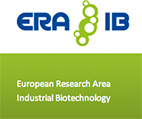New OBAC cluster funded within ERA-IB (Nov 2016)

The demand for biofuels and other biologically derived commodities is growing worldwide as efforts increase to reduce reliance on fossil fuels and to limit climate change. Most commercial approaches rely on fermentations of organic matter with its inherent problems in producing CO2 and being in conflict with the food supply of humans. These problems are avoided if CO2 can be used as feedstock.
Autotrophic organisms can fix CO2 by producing chemicals that are used as building blocks for the synthesis of cellular components (biomass). Acetate-forming bacteria (acetogens) do neither require light nor oxygen for this and they can be used in bioreactors to reduce CO2 with hydrogen gas or carbon monoxide. The application of gas fermentation using CO2 (or CO) as feedstock for fermentation allows a broad spectrum of carbon-rich wastes (gas wastes, municipal waste and biomass after gasification) that are available globally today to be recycled into valuable chemical commodities, thus reducing society’s dependence on oil and overall greenhouse gas emissions. Gas fermentation using these bacteria has been realized on an industrial level in two pre-commercial 100,000 gal/yr demonstration facilities deployed at industrial sites to produce fuel ethanol from abundant waste gas resources (by LanzaTech); commercial gas fermentation units are currently in design. Other end products such as, for example, acetone, diols or olefins are not possible since they do not allow the bacteria to generate enough energy.
OBAC will overcome the limitation of this procising next generation technology by engineering additional energy-generating modules into these bacteria. The aim is to develop processes with industrially-relevant economics, thus paving the way to a new CO2-based manufacturing sector. Thus, OBAC creates cutting-edge opportunities for the development of biosustainable technologies in Europe.

